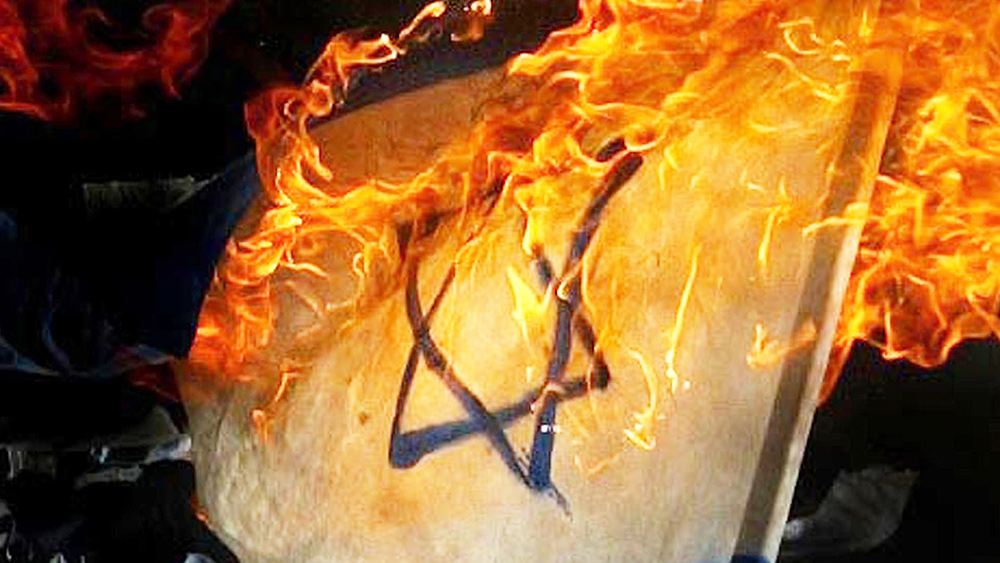
Ilan Pappe, a professor at the University of Exeter, told Kyodo News in a recent interview that he sees Israelis becoming less confident in their future. He also said that more people in the world, including even some Jews, are having second thoughts about their involvement in the Middle Eastern country amid its military campaigns.
What Hamas did in its Oct. 7 incursion last year, which involved mass killing of civilians and hostage-taking, was "like an earthquake to a very shaky building," Pappe said. "The incident made Israeli society more unstable, widening the extensive cracks already present," the 69-year-old said.
As a result of the attack and ensuing counteroffensives, the societal rifts in Israel between liberals and those on the far right have intensified, while Western nations are increasingly concerned about whether continued support for the country can serve their national interests, he added.
He further pointed out that the key tenet of Zionism – the movement for a Jewish state in Palestine – is wanting as much of Palestine as possible with as few Palestinians in it as possible.
"You cannot have a Jewish homeland without getting rid of the Palestinian population, and you cannot get rid of the Palestinian population without violence," he said, adding that his homeland's status quo appears so unsustainable that the so-called two-state solution, an envisioned arrangement in which it would coexist with a Palestinian state, may not be able to work.
"There's no solution right now. There is a process of Israel getting into big, big troubles, maybe to the point of disintegrating as a state," Pappe said.
Meanwhile, he called on the U.S., Israel's top ally, to stop providing money and weapons to the country and stop protecting it in the United Nations. He added that the result of next month's U.S. presidential election is unlikely to change the situation surrounding Israel.
Isreal's society is rife with division
A Pew Research Center survey conducted in March and April found that Israelis were divided in their views of Israeli Prime Minister Benjamin Netanyahu and perceived a lot of political conflict in their country. The survey was conducted during a previous wave of protests against judicial reform but before the July passage of a law limiting the power of Israel's Supreme Court.
On balance, Israelis viewed Netanyahu slightly more unfavorably (52 percent) than favorably (47 percent) in the spring survey, but opinions varied widely. (Related: Israel's FINAL SOLUTION for Gaza is genocide followed by annexation into Greater Israel.)
People who supported Netanyahu's conservative Likud party or other parties in his governing coalition had nearly unanimously positive views of Netanyahu: 97 percent said they had a favorable view of him, including 64 percent who had a very favorable view. But among those who did not support the governing coalition, only seven percent had a favorable view of him, and 63 percent had a very unfavorable view.
Ratings were divided along ideological lines, too: 85 percent of people on the political right saw Netanyahu favorably, compared with 15 percent of those in the center and 6 percent on the left.
Jewish and Arab Israelis also diverged in their views of Netanyahu: 57 percent of Jewish Israelis offered positive assessments, while only 10 percent of Arab Israelis did the same. Divisions were stark among Jews as well. While 93 percent of Haredi ("ultra-Orthodox") and Dati ("religious") Jews and 72 percent of Masorti (traditional) Jews had positive views of Netanyahu, only 22 percent of Hiloni (secular) Jews did.
These divided views over Netanyahu reflect something most Israelis seem to agree on Israeli society is rife with divisions. Seven in ten or more Israelis saw strong conflicts between people on the political left and right, as well as between Arab and Jewish Israelis. The Arab-Jewish conflict stands out, however, because nearly half of Israelis saw it as a very strong conflict.
Visit Violence.news for stories related to this.
Watch an interesting discussion about Israel and the Gaza war.
This video is from the alltheworldsastage channel on Brighteon.com.
More related stories:
Israel declares UN Secretary-General Guterres PERSONA NON GRATA.
Investigation reveals Israeli troops committing first ever 'live streamed genocide.'
Biden orders U.S. military to help defend Israel against future Iranian strikes.
Latest Israeli attack on Gaza's al-Mawasi humanitarian zone left people "torn into pieces:" "most of them women and children."
JEWS HIDING GENOCIDE: Netanyahu adviser Jordana Cutler appointed as chief of Facebook's U.S. censorship unit on Israel and Palestine.
Sources include:
EnglishKyodonews.net
PewResearch.org
Brighteon.com
Source link

